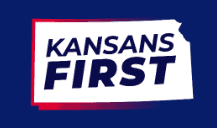Declaring that rural communities in Kansas are threatened by school choice advocates, a group of former legislators have founded Kansans First, dedicated to finding a “middle ground” on education and other issues.
With the motto: “Before we are Republicans, before we are Democrats, before we are Independents, we are Kansans, First”, the group intends to oppose initiatives from “the ideological extremists and hyper-partisan lawmakers who have taken over — and broken — our two-party system, according to their website.

The organization is headed by former Republican State Senate President Steve Morris, who was unseated in 2012 after 20 years in office by a primary challenger backed by former Governor Sam Brownback, who successfully engineered the removal of many moderate GOP legislators who opposed his agenda that year.
From the Articles of Incorporation for Kansans First, the Board of Directors, in addition to Morris, are:
- Former Democratic State Senator Tom Hawk
- Former Republican State Senator Mary Jo Taylor
- Former Republican State Senator John Skubal
- Chris Courtright, former Principal Economist with the Kansas Legislature.
The group also advocates for tax cuts with a simple position of “broaden the base, lower the rate” and Medicaid expansion, although they admit the federal government can’t afford the 90% match on the cost of enrolling those eligible.
On their opposition to school choice, Kansans First sees their task as preventing a diversion of funds from smaller school districts in rural Kansas:
“Ideological extremists and hyper-partisan lawmakers who currently lead the Kansas Legislature keep trying to divert our tax dollars to private schools, primarily found in the bigger cities and suburbs where there are already many public options. Meanwhile, our rural public schools struggle to simply remain open, let alone offer the wide array of classes and extracurricular opportunities available in their better-funded counterparts..
“Call it a voucher, call it a scholarship, call it a savings account… they all do the same thing. They set aside some of our tax money for education — just not for our rural schools, and not for our rural students who live too far from a private school to ever use one.”
This table containing data from the National Assessment of Educational Progress (NAEP) demonstrates that there is no relationship between spending and student achievement. With record-high levels of per-pupil spending, the Sunflower State gets less “bang for their education buck” than some other states:

The group’s conclusion about the fate of rural schools in a school choice state is disputed by Jason Bedrick of The Heritage Foundation and Dr. Matthew Ladner, with the Arizona Charter School Association, who write:
“Rural areas have far more education options than the opponents of education choice claim. Private schools, charter schools, microschools, and virtual learning are accessible to most students in rural areas and policymakers can expand access by enacting robust education choice policies. Additionally, Arizona’s experience shows that education choice policies spur the creation of new options and the expansion of existing ones, including in rural areas.
“Moreover, contrary to the scaremongering by opponents of education choice, there is no evidence that the expansion of education options in rural areas has any negative effects. Indeed, the best available evidence suggests that choice and competition are the rising tide that lifts all boats, including in rural areas.”
The authors offer two proposals for legislators seeking to expand access to education opportunities in their states:
- Enact universal K–12 ESAs. ESAs empower families with the freedom and flexibility to customize their children’s education. Families can use ESAs to pay for private school tuition, microschooling, virtual learning, tutoring, textbooks, homeschool curricula, transportation, and more. Families can even roll over unused funds to save for future education expenses. ESAs can provide rural families with access to a wider variety of education options and create an incentive for education providers to serve rural areas.
- Expand charter school policies. Policymakers should make it easier to open and operate charter schools, generally, and in rural areas, specifically. States with restrictive, top-down regulations tend to have very few charter schools. In a misguided effort to ensure quality, they too often make charter schools inaccessible. By contrast, states like Arizona prioritize accessibility, making it easier to open charter schools and relying on bottom-up, parent-driven accountability to ensure quality. Policymakers should reduce barriers to entry for charter operators, allow multiple charter authorizers, grant longer charters, and reduce red tape.
“No one school can best meet the needs of all the children who just happen to live nearby. Families living in rural areas deserve more education options. By embracing education choice policies, state lawmakers can deliver on the promise of America’s education system and ensure that all children have access to the learning environment that best meets their individual needs and helps them to achieve their full potential.”
One of the panelists at the recent Hybrid and Microschools Summit co-sponsored by the Kansas Policy Institute, owners of The Sentinel, was Devan Dallenbach, Director of Re*Wild Family Academy with a K-12 student body of about 15 in tiny Abbyville, Kansas (population 83). On her school’s website, the former public school teacher posts that school choice is not intended as a condemnation of her past profession:
“Teachers are the BEST people in my book. It doesn’t matter how dysfunctional the system is, talented teachers make an impact and serve their communities and students sacrificially every day.”
She adds the public school system is to blame:
“Emphasis on tests, growing class sizes, and difficult behavioral issues, make managing a classroom increasingly stressful. Our educational system is in crisis.”
Here experience in a community of less than 200 Kansans also demonstrates that choice can exist in rural areas.
We reached out to each director of Kansans First and asked them a series of questions:
1 – A tenet of a market economy is that competition results in a better product. Why does Kansans First oppose competition for public schools, either urban or rural?
2 – How will stifling competition in Kansas K-12 education, now with record amounts spent per pupil, improve declining student achievement?
3 – Shouldn’t poor families have the same choices of where they send their children to school as wealthy families?
4 – Where did each of you send your children for their K-12 education; public or private school?
We did not receive a response from any director.



